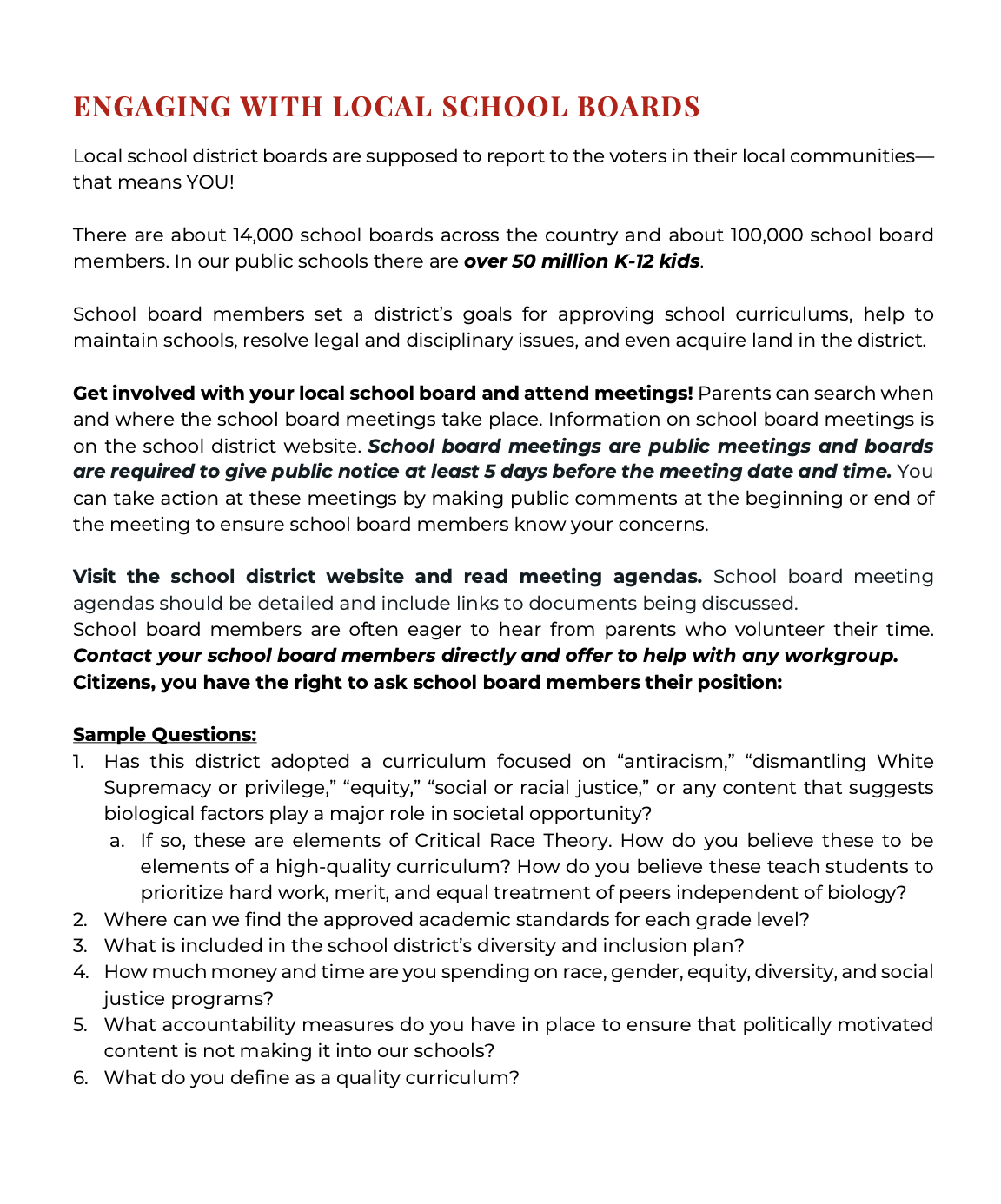Engaging with Local School Boards
ENGAGING WITH LOCAL SCHOOL BOARDS
Local school district boards are supposed to report to the voters in their local communities— that means YOU!
There are about 14,000 school boards across the country and about 100,000 school board members. In our public schools there are over 50 million K-12 kids.
School board members set a district’s goals for approving school curriculums, help to maintain schools, resolve legal and disciplinary issues, and even acquire land in the district.
Get involved with your local school board and attend meetings! Parents can search when and where the school board meetings take place. Information on school board meetings is on the school district website. School board meetings are public meetings and boards are required to give public notice at least 5 days before the meeting date and time. You can take action at these meetings by making public comments at the beginning or end of the meeting to ensure school board members know your concerns.
Visit the school district website and read meeting agendas. School board meeting agendas should be detailed and include links to documents being discussed.
School board members are often eager to hear from parents who volunteer their time.
Contact your school board members directly and offer to help with any workgroup. Citizens, you have the right to ask school board members their position:
Sample Questions:
- Has this district adopted a curriculum focused on “antiracism,” “dismantling White Supremacy or privilege,” “equity,” “social or racial justice,” or any content that suggests biological factors play a major role in societal opportunity?
a. If so, these are elements of Critical Race Theory. How do you believe these to be elements of a high-quality curriculum? How do you believe these teach students to prioritize hard work, merit, and equal treatment of peers independent of biology?
- Where can we find the approved academic standards for each grade level?
- What is included in the school district’s diversity and inclusion plan?
- How much money and time are you spending on race, gender, equity, diversity, and social justice programs?
- What accountability measures do you have in place to ensure that politically motivated content is not making it into our schools?
- What do you define as a quality curriculum?
*All of the content in this document is taken from the “Parent Toolkit: Advocating for Quality Curriculum” Click here to read more.
